Did you know that kids aged 2-4 start to become their own person and recognize themselves as a separate identity from their parents?
Yes, It’s true, and that’s why you shouldn’t be surprised if your 2-year old baby wants to do everything by themselves.
You say ‘No,’ and they seem to hear ‘Yes’ and keep testing your boundaries all day, every day. Well, it’s normal at this age, and they’re just trying to assert their newfound independence.
While there’s nothing wrong with it, toddlers need rules and boundaries to learn essential life skills.
In this article, we’re going to talk about the importance of setting boundaries with your toddler and give you some tried and tested tips for setting limits.
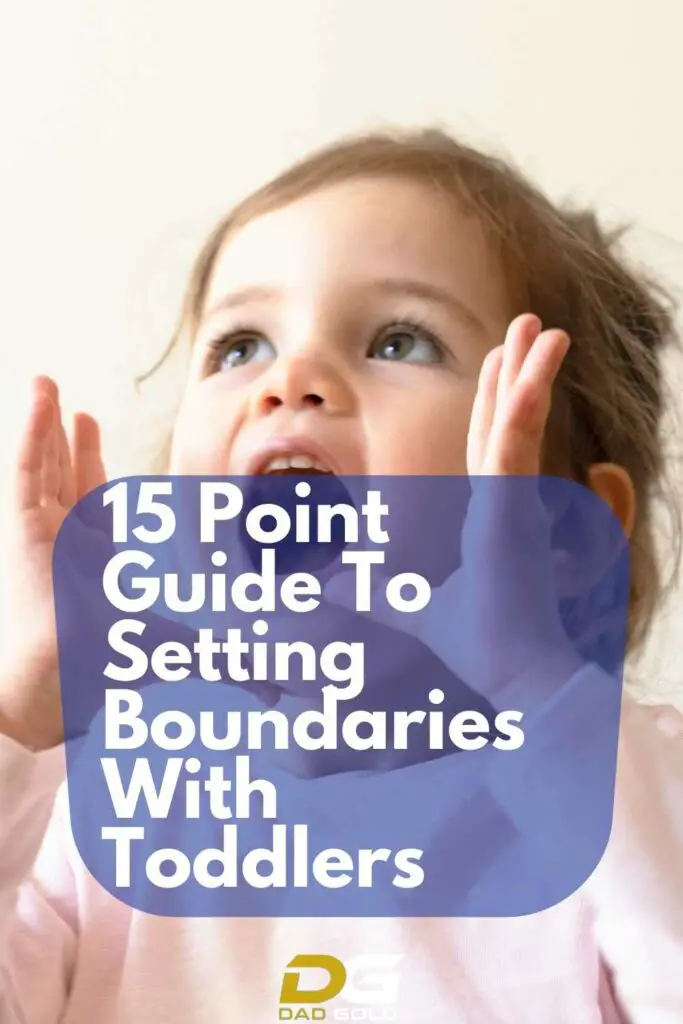
Why is it important to set boundaries with your toddler?
Setting boundaries with your child means establishing ground rules and teaching them what is acceptable and what isn’t.
If you consistently keep setting boundaries, it provides your toddler with a sense of predictability, reduces anxiety, and gives them comfort.
Boundaries are essential as they prepare kids to successfully navigate the real world, where they’ll be regularly exposed to lots of rules and boundaries.
-

Bold Male Pride – Baseball Trucker Cap Celebrating Masculinity
£18.00 Select options This product has multiple variants. The options may be chosen on the product page -

Dad Bod Appreciation Gift Mug
£14.00 Add to cart -

Dad Bod, Bad Jokes Structured Baseball Cap
£22.00 Select options This product has multiple variants. The options may be chosen on the product page
If you don’t set clear boundaries and give in to your baby’s demands whenever they throw a tantrum, it can not only cause a power struggle but also reward their bad behavior.
They start to believe that tantrums work and get them whatever they want. It creates uncertainty and, in turn, will make the children anxious. Also, not having clear boundaries may restrict their ability to develop a strong sense of self.
They may start to feel entitled, expect everyone around them to do whatever they want, and get frustrated when that doesn’t happen.
Setting and enforcing healthy boundaries help your child learn that they won’t get their way no matter how much they nag.
They’ll still try to test the boundaries and do their best to convince you to get their way. But if you stay consistent, gradually, they’ll start to improve their behavior.
There will be fewer power struggles and pushbacks as they clearly know the boundaries and the consequences of ignoring or breaking them.
It will teach them how to deal with disappointments in life and respect other people’s boundaries.
15 Tips for setting limits with toddlers
Here are 15 tips for you to set boundaries with your children. First, let’s get right into it, shall we?
1. Set Family Rules Early On
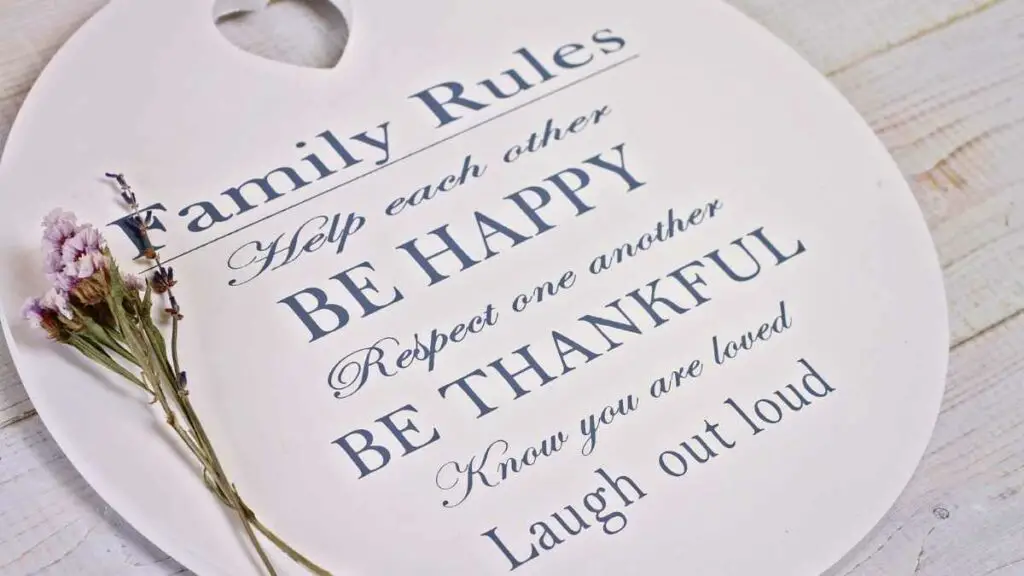
Having a clear set of family rules will create a structure for your children and help them understand what behavior is acceptable (and what isn’t). The rules have to be specific and clear so that your toddler understands them clearly.
After establishing the household rules, start implementing them even if you think your toddler is too young to understand.
2. Set and Enforce Consequences

State the consequences before your toddler pushes the limits. For example, tell them what will happen if they throw the toys. Then make sure to follow through immediately to learn right from wrong and realize that their actions have consequences.
Consistently follow through with the consequences so that your child learns that they’d have to take responsibility for their actions. However, the consequences should always fit the crime, and they should never be empty threats.
3. Give Clear Instructions

Instead of giving your toddler a long list of instructions, provide one at a time and ask them if they understood what you expect them to do. Give them time to do the first thing and when they’re done, tell them what to do next. Make sure your directions are clear and specific.
Telling them what to do instead of what not to do always works best. For instance, they’ll respond better to ‘Hold my hands’ than ‘Don’t run into the parking lot.’ Effective age-appropriate instructions can help your toddler stick to the boundaries instead of pushing the limits.
4. Be Firm But Don’t Yell

You need to model the behavior you expect from your toddler. To be a positive role model, make sure you don’t yell at them when disciplining them. Be firm and kind at the same time.
Setting boundaries doesn’t mean you can’t show your child the respect you want to receive.
Remember that your tone of voice carries great importance to your toddler. Also, get down on their eye level when you talk to them to feel intimidated.
5. Try parenting as a Team

When parents have different parenting styles, it might lead to disagreements and conflicts. Both parents need to set realistic, age-appropriate expectations and consequences for the toddler together so that they can maintain a united front.
It would be best if you never disagreed or fought in front of your toddler. Working together as a team is essential so that your child doesn’t think that the ‘Fun’ parent will rescue them every time the ‘strict’ parent gives them consequences.
So, try to put aside your differences, create the rules together and support each other.
6. Stay Consistent
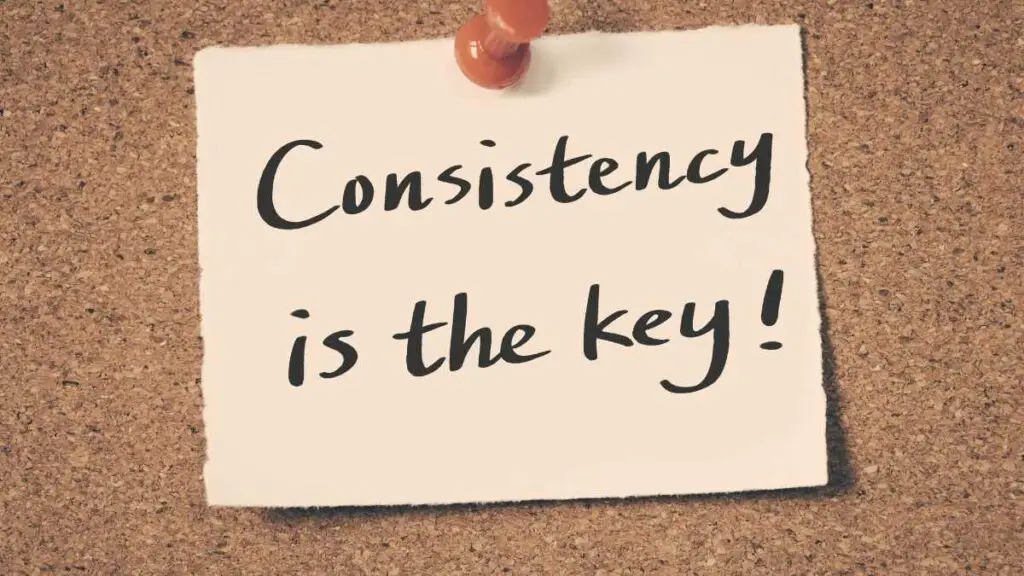
As they say, ‘Consistency is the key to success,’ which could not be more true for setting limits. Once the boundaries have been set, you shouldn’t change your mind to tame a temper tantrum. Instead, they may try different strategies to make you change your mind. But don’t give in.
Your toddler must respect the rules and understand that they can’t change them with persistent pestering or whining.
7. Try Prevention
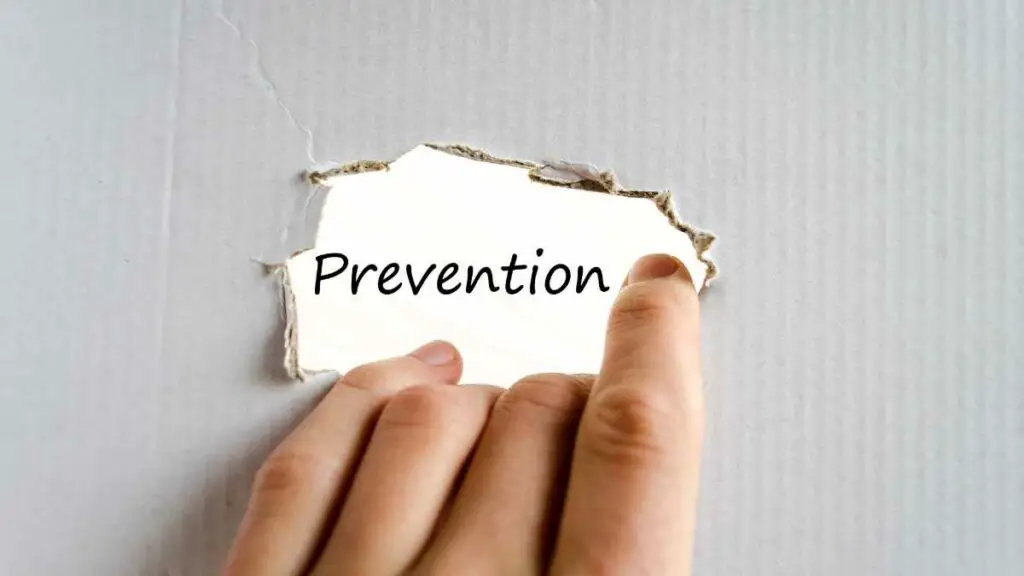
They say Prevention is better than cure. It’s always a good idea to distract your toddler and redirect their behavior in a positive direction before they get to testing your authority. So is your toddler about to throw the toys again? Instead of screaming ‘No,’ totally ignore their negative behavior.
To divert your toddler’s mind, you can start playing with the toys with them or ask them if they want to go out and throw the ball. Also, avoid bringing them to the grocery store when they’re exhausted, sleepy, or hungry if you don’t want to set a stage for a meltdown.
8. Avoid Arguments

Arguing with your toddler or trying to explain something repeatedly is a losing game. While it’s a good idea to explain why you’re setting the limit, do it only once. Aim to keep your cool if they don’t listen to you, start to talk back, or throw a tantrum.
Instead of arguing, tell them you don’t want to talk about it anymore and walk away. Before leaving the room, remind them what you expect them to do and what consequences they might face for not listening to you.
9. Don’t Label Your Child

If your toddler seems strong-willed, bossy, or difficult, it’s because they’re going through lots of developmental changes. They’re still learning how to navigate the world around them and cope with big emotions.
So that’s why it’s crucial that you see your child separate from their actions as a parent.
Labeling your toddler instead of their actions can have a lasting impact on how they perceive themselves.
For example, when you say, ‘Why are you so stubborn/rude/bossy/difficult?’ it becomes ingrained in your toddler’s brain that it must be true since that’s how you see them.
So, try to focus on what they’re doing instead of focusing on them.
10. Offer Limited Choices

When your toddler starts to push the limits to assert their growing independence and keep saying ‘Me do it!’, it’s a good idea to allow them to make some of their own choices. It helps them feel like they’ve got some control over their life, develop a sense of self and boost their self-esteem(win-win).
However, make sure you give them only two choices(that you approve of so that whatever they choose is fine by you). Ask them if they want a banana or an apple as a snack and let them pick. That way, you get your child to eat fruits while they feel like they’re in charge for a little while.
11. Use Positive Reinforcements and Attention

Your toddler needs your attention and approval daily. If they find out that the only way to get your attention is bad behavior, they start to act out. That makes you angry, but they still get a response from you, and kids don’t mind negative attention.
You can encourage good behavior by ignoring mild misbehavior and giving them a regular dose of positive attention.
Notice when your child is helpful, praise them for a job well done and reward them for their cooperation.
Then, put your phone down and listen to them when they say something.
If your child is not behaving as expected, use a positive redirection phrase to snap them out of it.
12. Pick Your Battles

At this age, it’s normal for your toddler to test your boundaries all the time, and that’s how they are going to learn what is appropriate and what isn’t. So while you’ll need to say ‘No’ to set limits with your toddler, there are times when letting things slide is your best bet.
Does it even matter if they want to stay in the park for a few more minutes? So what if they now have a favorite color and want to wear the same clothes over and over? Choosing your battles wisely will reduce your stress levels and make your kids take it seriously when you say ‘No.’
13. Try Not to Take it Personally

It’s hard not to take it personally when your child keeps defying you, and it feels like they’re trying to hurt you on purpose. Remind yourself that testing the limits is a normal part of child development. Your toddler isn’t doing it to hurt your feelings but learning through experimentation.
14. Let Go and Move On
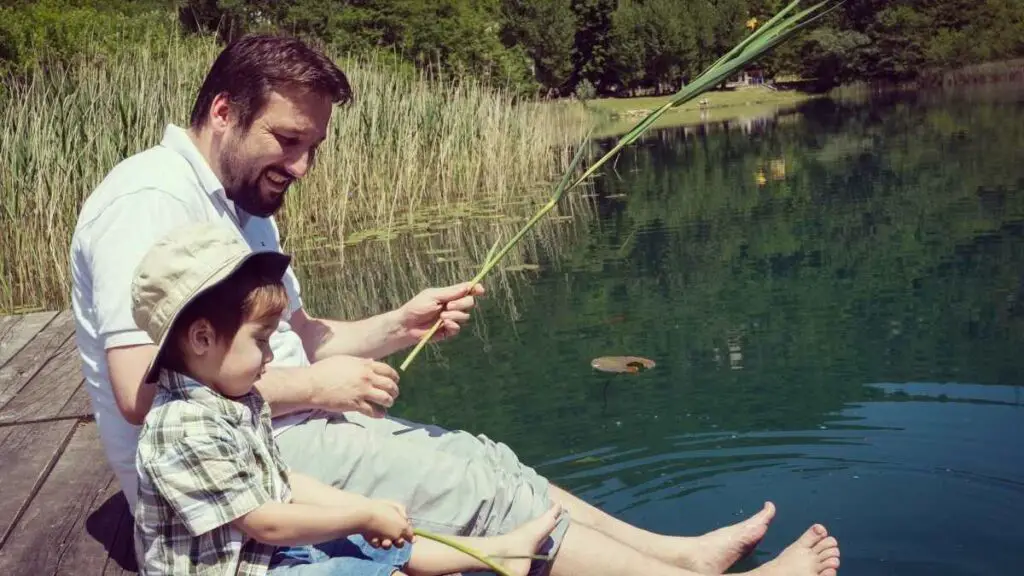
Let’s say it’s past bedtime, but your toddler won’t go to sleep. They want to stay up and continue watching their favorite show. You turn off the TV, and it’s meltdown city. It’s hard not to be mad at them for behaving that way.
But since you’re the parent, use it as a chance to teach them forgiveness by not harping on them about it. Once you’ve given them the consequence for their bad behavior, explain why you did that, ask them to apologize, and let it go.
15. Be Patient

It may take more than a few tries for your child to remember what you expect them to do and what happens when they break the rules. For example, they might try to challenge the limits a few times to see if they can convince you to give in.
Be patient and keep reminding them of the rules. Your patience will eventually pay off.
Conclusion
Children feel safe when there’s structure and routine. But, it can be challenging to find the right balance between setting boundaries and giving your toddler the freedom to do things their way.
So, keep trying different strategies until you find out what works for your toddler. It is part of being a good mom or dad to a toddler.
Good luck!

